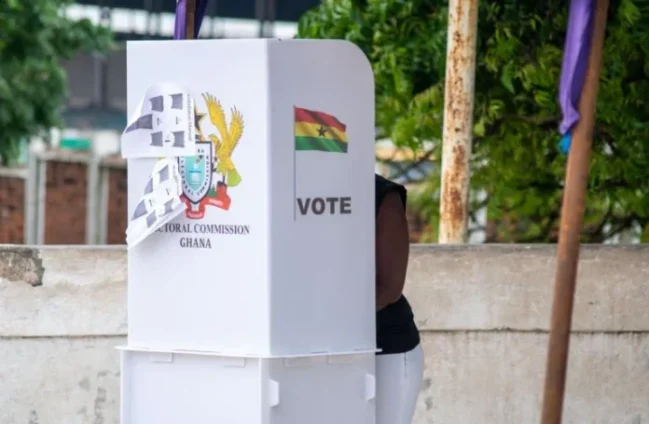
Programmes Director in charge of Election Security at the Centre for Democratic Development (CDD), Paul Mensah Abrampah, has backed calls by the Commonwealth and African Union Observer Missions for a transparent and merit-based process in appointing Electoral Commission (EC) commissioners.
Speaking on Joy FM’s Midday News on Thursday, August 14, Mr Abrampah said the proposal is not new but is essential to boosting public trust in the EC.
“It’s been repetitive; when you pick most of the observer mission reports, especially from 2012, since I joined CODEO’s security sector and election observation group,” he said.
“We’ve had some of these independent purgings of politicians from top positions of election management bodies. And let me also say, this is not peculiar to Ghana. These recommendations have been made across several African countries, especially by the African Union. I say it’s a good call, because every opposition political party has an issue with the elections management body, mostly because of the appointment of the top EC officials — particularly in the last two appointments and the circumstances leading to them.”
On how such reform could be implemented, Mr Abrampah suggested a mix of operational, legal, and structural changes, stressing the need for wider stakeholder participation before appointments are finalised.
“There are so many processes we can adopt,” he explained. “The operational processes, as CODEO has been recommending in its post-election reviews, include building broad consensus and allowing stakeholder input. If the president hints at a name, you allow some time to receive papers, recommendations, and comments on that person before the appointment, in addition to advice from the Council of State.”
He added that the ongoing constitutional review offers an opportunity to introduce a legal framework for such reforms.
“For example, in Seychelles, they have an independent appointment authority for all top positions, including the Electoral Commission. In Kenya, when they are appointing top secret officers, they advertise so that people who qualify can apply. We can adopt similar strategies to wean political hands off directly appointing EC officials,” he said.
Read also: [Observer missions push for EC appointment overhaul, lower presidential age limit]
Turning to electoral security, Mr Abrampah expressed disappointment over the weak enforcement of Ghana’s vigilantism law, passed in 2019 after the Ayawaso West Wuogon by-election violence.
“I’m disappointed because of the work we put in back in 2019,” he said. “It’s not only the Vigilantism and Related Offences Act that was developed. The National Peace Council, through mediation by the NDC and NPP — which I was part of as a technical adviser — also developed a code of conduct for political party behaviour and a roadmap to disband political vigilantism.
“Political parties were expected to disband their vigilante groups and submit reports to prove it, but none of them did that. Ahead of the 2024 elections, we deceived ourselves that vigilante groups had been disbanded, but they were still around.”
DISCLAIMER: The Views, Comments, Opinions, Contributions and Statements made by Readers and Contributors on this platform do not necessarily represent the views or policy of Multimedia Group Limited.
DISCLAIMER: The Views, Comments, Opinions, Contributions and Statements made by Readers and Contributors on this platform do not necessarily represent the views or policy of Multimedia Group Limited.


